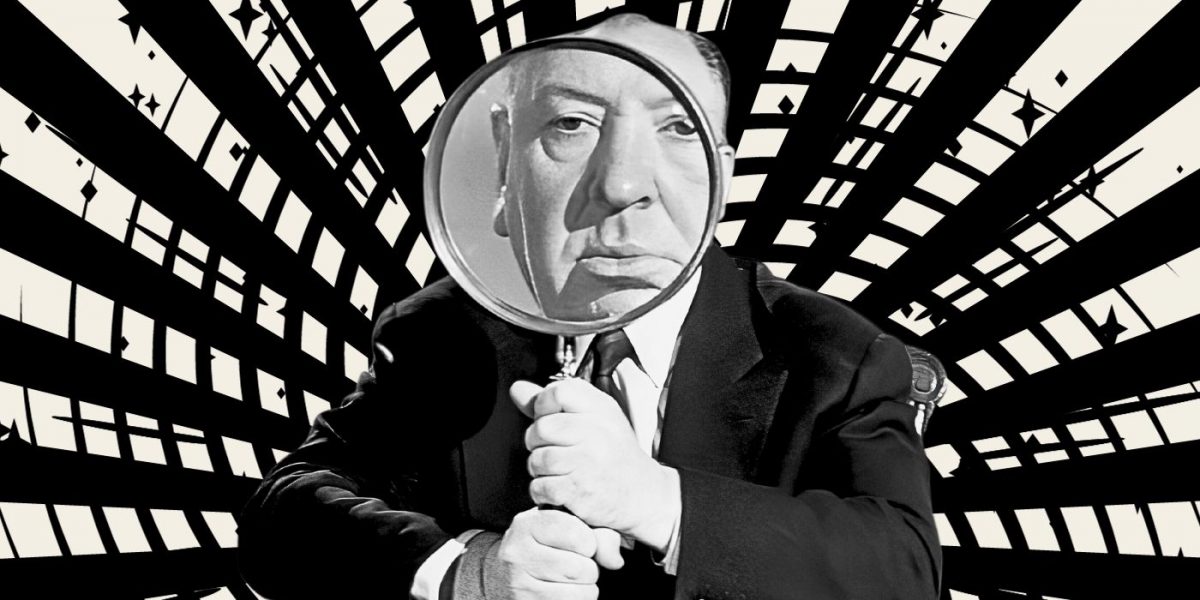
Alfred Hitchcock’s Final Movie Is More Black Comedy Than Thriller
Apr 12, 2024
The Big Picture
Alfred Hitchcock infuses humor in his darker films, even once famously stating that he views all his work as a comedy, even the genre-defining slasher,
Psycho
.
Family Plot
showcases Hitchcock’s dark comedic craft with eccentric characters and absurd situations.
Hitchcock balances wit and suspense in the film using music, cinematography, and clever dialogue.
Placing Alfred Hitchcock’s name alongside comedy is not something many would expect. Yet, the Master of Suspense, whose filmography includes some of the darkest pictures ever made, again and again, used humor as a constant artistic element. For Hitchcock, it didn’t matter how grim the story was. He famously stated, “Every film I make is a comedy.” For a filmmaker who described his most shocking and horrifying genre-bending Psycho as “a joke,” it’s understandable that some among his audience may not share in his comedic taste. But a closer look at Hitchcock’s works reveals a director keen on infusing humor in his works.
Hitchcock’s most recognizable clear-cut humorous film is his 1941 screwball comedy Mr. & Mrs. Smith. Beyond this, however, his pictures have often created a balance between high-stakes drama with intriguing suspense and surprisingly unsettling moments that make you laugh. In 1955, he made The Trouble with Harry, a black comedy film about residents of a peaceful neighborhood in Highwater, Vermont, waking up to a neatly dressed dead body. From the title, whose comedic justification we get in the film, we learn that the trouble with Harry is that he is dead. The film is a mix of thriller, suspense, and absurd humor, where one character stumbles on Harry’s dead body as he walks while reading, and others kick the body with their feet as if to wake him up or to confirm the death. In Strangers on a Train, Hitchcock explores this dark side of humor when Robert Walker’s character comically trains a woman on how to strangle someone to death. This brand of dark humor permeates Hitchcock’s filmography, with his final work Family Plot arguably serving as the quintessential example of his dark comedic craft.
Family Plot A phony psychic/con artist and her taxi driver/actor boyfriend encounter a pair of serial kidnappers while trailing a missing heir in California.Release Date April 9, 1976 Cast Karen Black , Bruce Dern , Barbara Harris , William Devane , Ed Lauter , Cathleen Nesbitt , Katherine Helmond , Warren J. Kemmerling Runtime 120 Minutes
What Is Hitchcock’s ‘Family Plot’ About?
Family Plot is a book-to-movie adaptation of Victor Canning’s novel The Rainbird Pattern. It intertwines plotlines of two “families” with similar goals to get richer, unbeknownst to each other. Drama ensues when Blanche Tyler (played by Barbara Harris), a fraudulent psychic who preys on the vulnerabilities of her affluent clients, crosses paths with the elderly Julia Rainbird (played by Cathleen Nesbitt) who is tormented by guilt. Julia’s remorse stems from her ignorance about her nephew’s whereabouts, haunted by her late sister’s presence in her dreams, believing that she is reproaching her for neglecting her nephew (the sister’s son). Blanche seizes upon this revelation, manipulating Julia into bequeathing her vast estate to her estranged nephew. However, the challenge lies in locating him, prompting Julia to enlist Blanche’s psychic services to trace him in exchange for a hefty reward: ten thousand dollars. With no leads, Blanche seeks the help of her cynical and sarcastic boyfriend George (Bruce Dern) to track down the elusive heir. From the outset, Hitchcock establishes a comedic tone, with Blanche’s fake psychic charades stealing the spotlight. Her exaggerated expressions, phony communication with the spirit world, and melodramatic performances, all serve as the film’s prelude to its underlying tension.
Meanwhile, the supposed heir Arthur (played by William Devane) and his partner in love and crime Fran (Karen Black) prove to be anything but ordinary. As Blanche and George uncover clues leading to Arthur, they stumble upon a web of criminal activities trailing behind him, turning their pursuit into a perilous endeavor as he fiercely guards his secrets. This is where Hitchcock’s trademark dark humor takes center stage.
Hitchcock Puts His Characters in Absurd Situations in ‘Family Plot’
Image via Universal Pictures
Focusing on two sets of families, Family Plot delves into characterization to achieve Hitchcock’s humorous take on this twisted narrative. In the film, Arthur and Fran do not fit the typical villainous mold we anticipate. They act all confident, especially Arthur, who thinks he’s untouchable. But really, they’re more like clumsy, bumbling crooks. Fran adds to the silliness with her wild wigs and silly antics, like keeping her wig in the refrigerator. Fran, too, despite being a baddie in the eyes of her robbery victims, has the fragility of an egg when around Arthur. He’s the boss, and she just goes along with whatever he says. It’s kind of funny, especially when Fran weeps loudly, ostensibly because she can’t handle Arthur’s cruelty and doesn’t agree with him.
In the other plotline, Blanche and George are a hapless couple. Their dialogue is comical, like when George tells Blanche, who is disappointed in his driving skills, that even though he is working as a taxi driver at the time, he is a professional actor who can play a taxi driver, but that shouldn’t make him drive like one. Hitchcock places layered humor in this dialogue. As Bruce Dern, a real-life actor playing George — the budding actor and taxi driver in Family Plot — his lines draw inspiration from himself. After creating such a fiasco over the taxi driver’s job, their conversation turns into a much more positive and comical one when Blanche mentions the “big ten” as the figure her new client is willing to pay. It goes on and on as the pleasantly surprised George takes in the information that they may earn ten thousand dollars from the deal. But even more absurd at their darkest time is during their brakeless car scene, in which Blanche, a supposed psychic with supernatural powers, awkwardly clings to George as he drives for dear life, despite the danger of their car crashing. Even their departure from the resulting wreckage is comical, with Blanche escaping atop the car with a bird’s view and George exiting from below, with a worm’s view, having Blanche’s feet stepping on his awkwardly wrinkled face.
Related The Movie Hitchcock Was Working On When He Died Has Still Never Been Filmed Although the script was completed, this ambitious spy thriller was never picked up following Hitchcock’s death.
This approach by Hitchcock is not unique to Family Plot. In a similar car chase scene in his 1959 thriller North by Northwest (whose screenwriter is also Ernest Lehman), the protagonist Roger Thornhill (played by Cary Grant) escapes a set-up drunk-driving accident with a whisker. In the scene, despite his car hanging at the edge of a cliff, he laughs at the danger, and even as he drives dangerously on the highway, his drunken facial expressions momentarily divert us from the impending danger. Hitchcock would go on to explain the importance of relieving audiences of tension, stating that stretching it could prove counterproductive, adding that a balance between humor and suspense is vital in his filmmaking.
Hitchcock’s Dark Humor in ‘Family Plot’ Is Characterized by Sharp Wit
Lehman’s Family Plot screenplay, particularly the use of dialogue, is witty and utilizes misunderstandings and double entendres to create humor. For instance, when George suspects they are being set up during a meeting invitation, he tells Blanche that it “smells fishy” to him, to which Blanche replies that “even fish smells good when you’re starving to death,” reminding him of their desperate financial situation that motivates them to take risks. This dialogue also deepens the complexity of their characters, showcasing their cynicism and willingness to overlook potential danger for financial gain.
In a much darker humorous portrayal, Arthur ironically asks Fran, “Isn’t it touching how a perfect murder has kept our friendship alive all these years?” He, in a twisted way, romanticizes their bond while referencing a horrific act. This ironic juxtaposition creates a darkly humorous effect, highlighting the twisted nature of their relationship. The effect on audiences is a sense of “darkness with a wink,” where the audience acknowledges the seriousness of the situation while simultaneously finding amusement in the absurdity of the characters and situations. Speaking of which, the film’s final image has Blanche breaking the fourth wall and winking at the audience. Even though it wasn’t in the screenplay, Hitchcock allowed it to remain in the final print, indicating his cheeky approach to making the serious story at hand.
Hitchcock Uses Music for Comedic Effect in ‘Family Plot’
In a film where Hitchcock’s use of dark comedy seems to outweigh its thriller elements, Hitchcock employs cinematography to balance it out. His camerawork and music fill in for his usual suspenseful storytelling. In Family Plot, Hitchcock subverts the typical use of music, often associated with heightening suspense and creating a sense of unease. Instead, he uses music for comic relief.In an interview with Classic FM, Family Plot’s music composer John Williams stated that Hitchcock told him to create light scores for the film, while concluding, “Mr. Williams, murder can be fun.” While Hitchcock also uses music in Family Plot to build up suspense, such as in a scene where Ed Lauter’s character disappears through the window, he has Williams fade out the music as the camera shows the open window, marking the end of the suspense and indicating that the character had disappeared. It is such a clever use of music that depicts the auteur’s genius.
Besides music, Hitchcock uses cinematography to immerse viewers in Family Plot. His camerawork is intentional. In the brakeless car scene, he decides to use Barbara Harris’ and Bruce Dern’s close-ups combined with their point of view of the road without showing any long shot of the exterior of the car to place viewers beside the duo as they face death in the eye. Another aspect of Hitchcock’s filmography is his choice of locations, which enhance the dark comedic tone of the film. Arthur and Fran’s spooky home with hidden brick-like doors leading to much darker spaces shows Hitchcock’s intention to be funny while depicting danger. This immersive experience is balanced out with the characters’ eccentric comedic antics.
Alfred Hitchcock’s venture into comedy with Family Plot might initially surprise those familiar with his darker works. However, Hitchcock’s propensity for humor shines through his final film, showcasing his versatility as a filmmaker. Despite the grim nature of his stories, Hitchcock believed that every film he made was, at its core, a comedy. In Family Plot, dark humor, a trope in his filmmaking, finds a perfect home.
Family Plot is available to rent on Prime Video in the U.S.
Rent on Prime Video
Publisher: Source link
Aubrey Plaza Issues Statement After Jeff Baena’s Death
The 40-year-old star and Jeff’s family issued a statement to People on Monday, where they called their loss an “unimaginable tragedy.”The Los Angeles County coroner’s office previously determined that Jeff died by suicide in his LA home. He was 47…
Jan 10, 2025
Jill Duggar’s Husband Clarifies Where He Stands With Jim Bob Duggar
Jessa Duggar (m. Ben Seewald)Jim Bob and Michelle's fifth child, Jessa Duggar, was born Nov. 4, 1992. Jessa met Ben through church and he began courting her in 2013—the old-fashioned approach to romance coming as a brand-new notion to a lot…
Jan 10, 2025
The Internet Has Officially Lost It Over Andrew Garfield's Slutty Glasses
That man knew exactly what he was doing with those glasses.View Entire Post › Disclaimer: This story is auto-aggregated by a computer program and has not been created or edited by filmibee.Publisher: Source link
Jan 9, 2025
Armie Hammer Lands First Movie Role Since Cannibalism Allegations
Armie Hammer Cameos As “Kannibal Ken” in Music Video 4 Years After Cannibalism ClaimsArmie Hammer is heading back to the big screen. More than one year after the Los Angeles Police Department ended their lengthy investigation into the Call Me…
Jan 9, 2025











